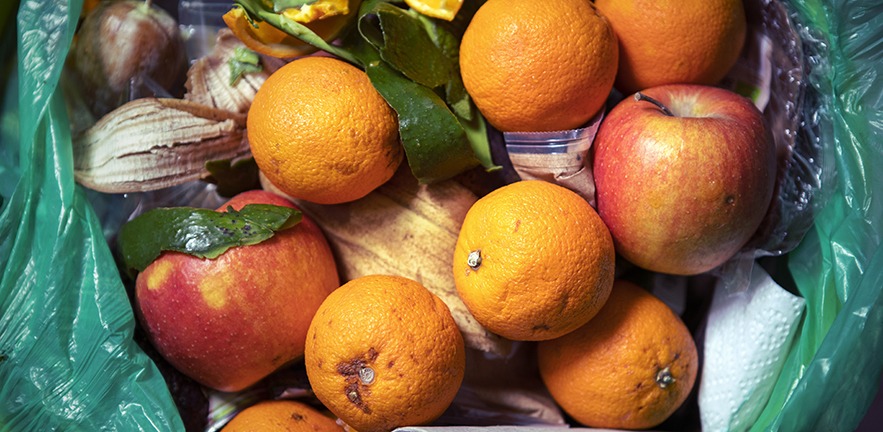Overview
In order to develop and implement sustainable practices globally, it is critical to understand the cause and effect of government policies and regulations, and external influences on our behaviour as consumers.

Leading through policy and regulation
We are all able to make a change, big or small, in the effort to tackle climate change. Governments and policymakers have a responsibility to the public, and to the planet, to ensure that realistic policies are in place to meet realistic goals in order to combat the climate-crisis.
Energy use in buildings is the single largest source of greenhouse emissions in the UK and in many countries. The size of the building stock, and amount of building floor area, are among the most critical determinants in assessing energy use and carbon impact. Yet, official statistics on urban residential building stock is often piecemeal at best, meaning forecasts of future emissions can be highly uncertain.
Addressing this issue, a study co-authored by Dr David Reiner and colleagues at the Energy Policy Research Group (EPRG), has developed a model that can help estimate building stock, allowing policymakers to assess their progress in meeting climate-change targets.
The authors of the study, which focused on building stock in China, say that their “first-of-a-kind” analysis is well suited to carry out studies of energy and carbon impacts in various contexts around the world.
A report prepared for the Centre on Regulation in Europe (CERRE), co-authored by Reiner’s fellow EPRG Assistant Director, Professor Michael Pollitt, identifies that the EU Emission Trading System (ETS) should be extended to include buildings, as well as transport.
If done in a way that does not undermine existing standards, the report says that the inclusion of buildings and transport to the EU ETS would be a substantial contribution to the achievement of Europe’s climate goals, namely the reduction of EU-wide emissions and the achievement of no net emissions of greenhouse gases by 2050.
In order to meet their climate-related targets, policymakers should be looking to embrace technology in the development and assessment of climate-related regulations. A paper co-authored by Dr Kamiar Mohaddes has developed a new framework using artificial intelligence to improve energy policy research in the Global South.
The framework aims to reduce biases and lead to broader solutions by allowing for the zooming-in, out and through, of problems, meaning that possibilities and assumptions that are forgotten or are taken for granted can be better recognised. It also allows for better understanding of the granularity of the issues and the critical analysis of narratives as to material reality, norms and practices that determine the energy culture.
It’s not just that new technologies should be used to help inform policy, but also that policy should be reactive to new and emerging technologies, such as renewable energy.
Regulators need to be able to better support the trend toward renewable energy in order to prevent network overloads, but a study co-authored by Dr Karim Anaya and Professor Michael Pollitt has found that regulatory changes differ widely from nation to nation.
Studying seven jurisdictions – Australia, France, Germany, the UK, Japan, The Netherlands, and Norway – the paper found a collective interest in the procurement of flexibility on the part of distribution utilities, but no real consensus on the best way forward.
Consumer behaviour and doing more with less
Governmental policies and regulations will have a massive influence on how the climate-crisis develops, but it is also important that we see a change in individual consumer behaviour.
Despite an increase in circular supply chains, which are more sustainable, there are very few functioning examples. An article in Harvard Business Review, co-authored by Professor Christoph Loch and Dr Khaled Soufani says that consumer compromise may be required to ensure the success of these supply chains going forward.
Many products tend to use specialised parts and are produced in highly dispersed operations, so unless consumers are prepared to compromise a bit on performance and cost, circular supply chains are likely to remain rare.
Consumers can also play their part in helping break the “race to the bottom” that leads to increased food waste. The “fickle” nature of consumer shopping habits cascades upwards through the food chain through grocers. Supermarkets then order far in advance, causing farmers to grow more than they’re able to sell.
Yasemin Kor, Beckwith Professor of Management Studies says that consumers greatly underestimate the amount of food they waste, whilst also viewing food waste as more acceptable than a couple of decades ago. Speaking about research that she co-authored with Professor Jaideep Prabhu, Kor says that the rise in online shopping may help alleviate food waste by stemming impulse buying. She also highlighted the responsibility of supermarkets to better educate customers to cut household food waste, for example by showing ways to use leftovers.
Prabhu, Jawaharlal Nehru Professor of Indian Business & Enterprise, also highlights the concept of jugaad, or frugal innovation, which has rapidly moved from India to western countries. While many of the best examples of jugaad innovations come from the developing world, the concept isn’t unique to India. In the US, it’s DIY culture, the Brazilians call it gambiarra or jeitinho, while Africans know it as kanju.
Jugaad, a Hindi word, is the art of overcoming harsh constraints by improvising an effective solution, using limited resources. Anyone can do it, with anything, and it can happen anywhere – all it takes is ingenuity. Prabhu says the possibilities are endless and in emerging markets, he points out, people have no choice but to innovate in this way.
More from Cambridge Judge on energy, efficiency and supply
Insight
Flexible energy markets
How can regulators better support the trend toward intermittent renewable energy connected to lower voltage distribution networks in order to prevent network overload? Regulatory changes so far vary widely, finds a new paper from Cambridge Judge Business School.
Supermarkets and consumers can both change their behaviour to reduce food waste, says Professor Yasemin Kor of Cambridge Judge Business School.
Insight
Climate targets
Extending EU Emissions Trading System to buildings and transport will require measures to protect the most vulnerable consumers, says report co-authored by Professor Michael Pollitt of Cambridge Judge Business School.




